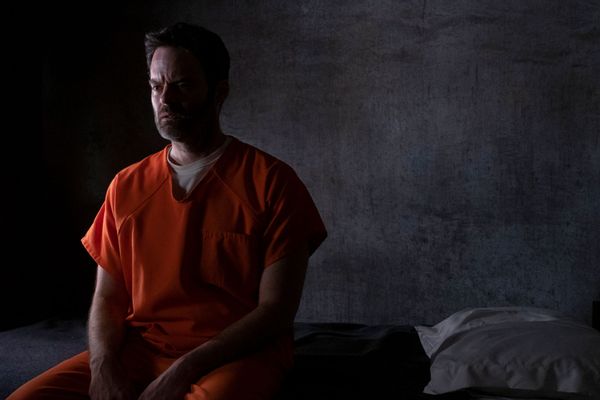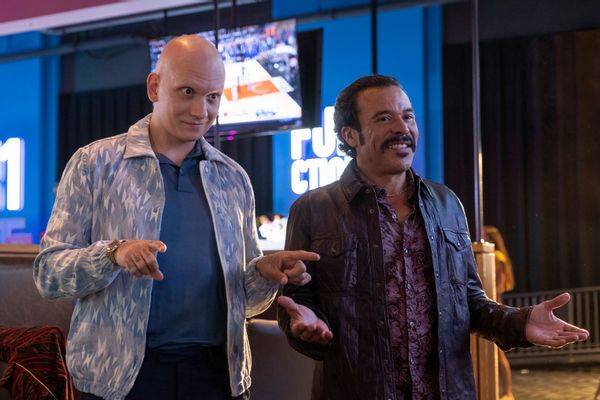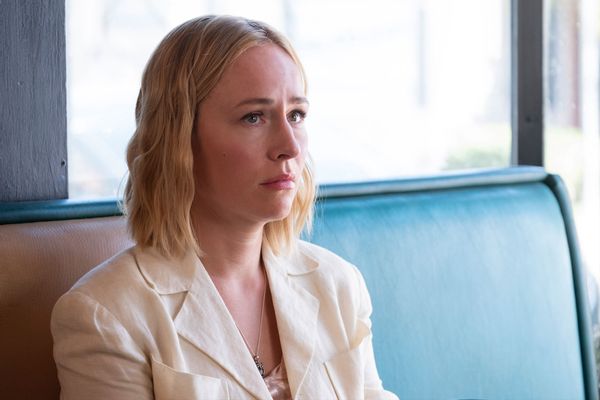
The fourth and final season of "Barry" premieres less than a week after Warner Bros. unveiled the title for its mega streamer as Max, confusing if not scandalizing the public by dropping "HBO" from its title.
The last ride of Bill Hader's regretful unhinged hitman Barry Berkman would seem to have little to do with the media conglomerate's branding decision unless one contemplates all the ways this show represents the pinnacle of what the premium cable meant when it once insisted that it's "not TV."
Hader and co-creator Alec Berg never shied away from the episodic format or attempted to persuade us that each season was more of a four-hour movie than a show. Instead, with each new season, they and the writers pushed Barry and everyone connected to him by choice or force to funnier, darker places.

They also pulled off a feat that few other series about complicated and essentially terrible people do well, if at all, panning comedic situations out of darkness and pure evil, bringing us to the other side of each season while still enjoying the company of these narcissists and killers.
Chalk it up to the writers and actors' refusal to ingratiate their self-involved actors, gangsters, and hitmen to the audience, to explain their actions or achieve absolution even if Barry, for one, never stops seeking forgiveness or a new start. Not even after he snaps and kills entire branches of organized crime, friends and foes alike.
That refusal to pander frees Hader and his co-stars Sarah Goldberg, Anthony Carrigan, Henry Winkler, and Stephen Root to slough off their skins between each new season, culminating in these final episodes where everyone is raw, ragged and bloody. Barry especially, which would seem to be a given since he ended the third season on his way to prison.
Barry Berkman is an ever-accelerating decline in progress, inspiring Hader to steadily and entirely transform his performance with each new cycle of episodes. Anyone watching had to sense that Barry would end up precisely where we see him now – angry, guilt-frayed, and alone, albeit locked up with his traitor of an ex-handler Fuches (Root).
The face Hader puts on Barry in these new episodes is less explosive than the smoking volcano he personifies in Season 3 but scarier somehow – although that fright may be less for the people around him than for him. Somehow the star translates Barry's complete brokenness into the look of a man who is melting like a cheap candle, notably in wordless sequences that play out in disconnected stares and jaws slackened by hopelessness and violence.
Hader, a two-time Emmy winner for this role, has fine-tuned his performances to be synchronous with his directing; he helms all eight installments of this season, seven of which were made available for review. Each is a sprightly ride integrating what he and the cast bring out in the script with the lens' language, playing with our comprehension of what's reality versus hallucination, jolting lucid dreams into reality with the simplest tricks.
"Barry" represents the pinnacle of what the premium cable meant when it once insisted it's "not TV."
He spreads that careful devotion to framing scenes shots and capturing the psychological currents of a situation through angles and distance, which alchemizes wonderfully with Sally's (Goldberg) subplots and fluffs Winkler's portrayal of Gene Cousineau's dangerous arrogance if that's possible. Goldberg and Winkler glow in their own right, for separate reasons.
Sally's Hollywood flameout requires her to slink back to Joplin, MO., providing the audience a window into the reasons she left. Haunting as those scenes are they're also brutally funny. That matches the methods and general life approach of her acting mentor Gene, riding a new high after parlaying his misadventures with Barry into a reset of his 15 minutes, with the vengeful Jim Moss (Robert Wisdom) never far from him, still hunting for solace and his daughter's murderer.

NoHo Hank is, as ever, a balm to soothe the horror or all the death and murder in his midst, although his brush with death by a hungry predator after being chained to a radiator dims some of the light in him. Carrigan's upbeat smoothness cheers the character despite obvious signs that his ordeal to save Cristobal (Michael Irby) has embittered a share of his optimism.
The star-crossed lovers survived and have set up shop away from Los Angeles, taking a stab at their own version of starting over which, as this series is fond of reminding us, is impossible.
"Barry" is cumbersome, always precise, and these episodes wind with many turns that require a person to remind themselves that it was once clearly designated as a comedy. That's not to say the joy is no longer present – everyone in front of the camera and behind it faultlessly maintains that engine.
Still, it's more of a work of open desolation, tension, drama and ache than it ever was while affording the audience relief via oases of slapstick and hilarity.

Hader and Berg designed "Barry" with more complexity than that; besides, the third season finale checked two major queries off the list – he got caught, and he's in prison. If there's anything left to ponder, maybe it's whether these people will get what they deserve, what that means, and whether that matters. All of these questions boil down to the hope that "Barry" will send these characters off well and give the show a good ending.
Seven out of the season's eight episodes leave a strong impression that it will.
"Barry" premieres Sunday, April 16 at 10 p.m. on HBO.







